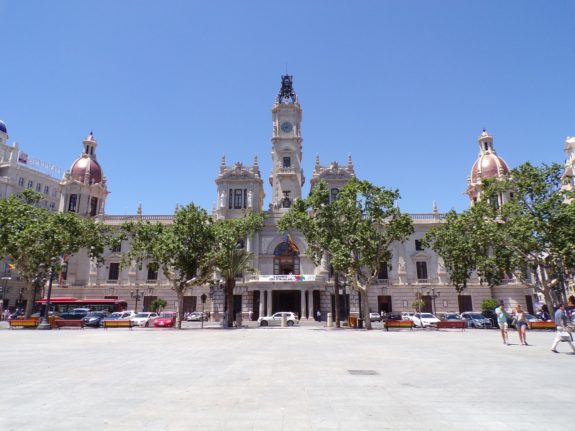 Michael Harris from Eurocitizens gives evidence to the parliamentary committee.
Michael Harris from Eurocitizens gives evidence to the parliamentary committee.BREXIT
Residency for Brits in Spain: ‘We’d encourage second-home owners to register’
With the Brexit transition period slipping away Michael Harris, from Madrid-based Eurocitizens group, outlined to a British parliamentary committee on Tuesday some of the problems that Brits in Spain and notably second-home owners are facing.
Published: 30 June 2020 15:26 CEST
Updated: 30 June 2020 17:03 CEST
Updated: 30 June 2020 17:03 CEST

Photo: Deirdre Carney
Michael Harris was one of three members of the British in Europe citizens' rights group which gave evidence to the parliamentary committee on the Future Relationship with the European Union.
Their input focussed on how the Brexit Withdrawal Agreement agreed between London and Brussels was being implemented across Europe, or more to the point how it still hasn't been in most places.
The committee heard how most EU countries were lagging behind the UK when it came to ensuring the rights for Britons in the EU that protected by the Withdrawal Agreement are written into national law.
Indeed out of 27 EU countries only Italy, the Netherlands and Malta have begin implementing the citizens' rights part of the agreement, agreed by both sides in March 2018.
Harris, from the Eurocitizens group and British in Europe, spelled out the issue facing Brits in Spain with only six months of the transition period remaining.
“Transition is disappearing, it's slipping away. Time is of the essence and also the anxiety levels of people are very high,” he said.
Harris said the pandemic and the severe lockdown had knocked the Spanish government's efforts to implement the Withdrawal Agreement well off course.
“Things were going fine in Spain until the lockdown… we had meetings with the Spanish government,” he said.
“Since then everything has gone haywire. We have had a very severe lockdown and things are only beginning to move now.
He said the Spanish government is announcing details of ID card Brits will need next month.
 Michael Harris from Eurocitizens gives evidence to the parliamentary committee.
Michael Harris from Eurocitizens gives evidence to the parliamentary committee.
We at least know that Spain has opted for a so-called “declaratory system” meaning the rights of British residence are in theory guaranteed without any application process – in contrast to the constitutive system France is employing.
But even without the obligatory application process Brits in France are facing, it doesn't mean everything will be straightforward for Brits in Spain and in particular those British second home owners who are not residents.
“Because Spain is a declaratory system it doesn't mean everything is plain sailing,” Harris said.
“There's no legal deadline, there's no legal cliff after which people will become illegal, but in practice you will need to demonstrate your new status after December 31st to be able to travel in and out of the Schengen zone and to access services in Spain.
“To get this documentation you'll have to go through the system, and Brits will no longer be in the more benevolent EU system but the more cumbersome, more difficult third country system.
“That's something we are worried about. There may be people who can't demonstrate they have the rights under the Withdrawal Agreement.”
Harris also encouraged second-home owners who spend a lot of time in Spain to register as residents or face only being able to spend 90 days in Spain out of every 180-day period after December 31st.
“If you are spending up to six months a year in Spain we would encourage them to register in order to access healthcare but also to meet their fiscal obligations,” he said.
“Really under EU law after being three months in a country you should register, so we think people should register if they want to spend that amount of time in Spain.”
You can watch British in Europe's evidence to the parliamentary committee by clicking HERE.
Url copied to clipboard!


 Please whitelist us to continue reading.
Please whitelist us to continue reading.
Member comments